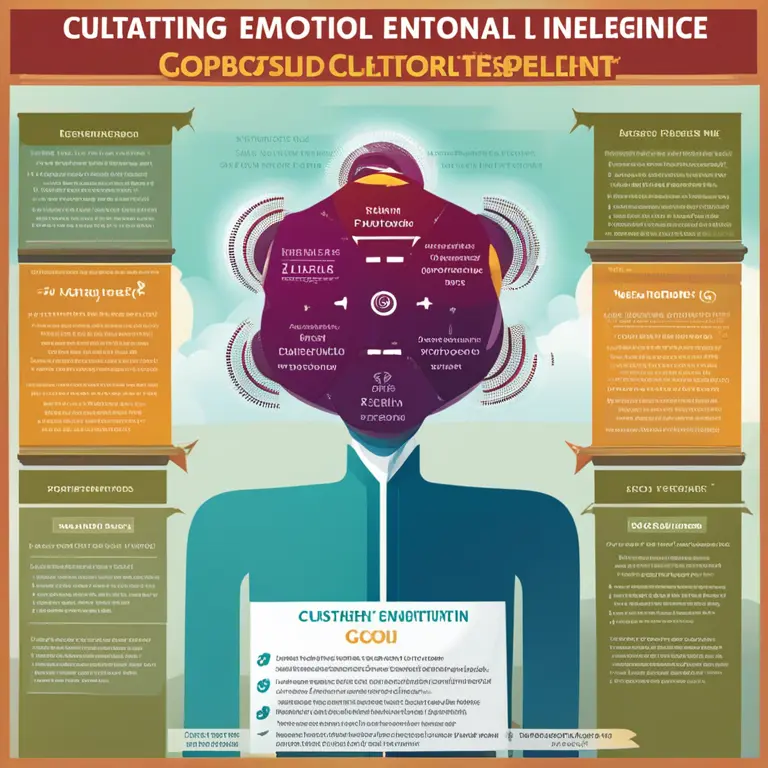
Mindful Leadership: A Meditation Approach
Cultivate inspiring leadership qualities through the integration of meditation and mindfulness in your professional journey.
article by Hina Kurosawa
Integrating Mindfulness in Leadership
Modern leaders are often faced with an unprecedented level of stress and rapid changes in the business world. Meditation and mindfulness offer a refuge—a way to navigate challenges with clarity and composure. By integrating these practices into their daily routines, leaders can cultivate the patience, insight, and creativity necessary to guide their teams effectively. Meditation fosters a clear mind, allowing leaders to make decisions from a place of balance rather than haste. Mindfulness, on the other hand, enhances present-moment awareness, which is crucial in leadership for effective communication and empathy.

The Rise of Conscious Leadership
The concept of consciousness in leadership is gaining traction within corporate cultures, as companies recognize the benefits of a mindful approach. In 2024 and beyond, the call for leaders who are not only strategic but also self-aware and compassionate will continue to rise. Conscious leadership embodies the essence of mindfulness—being attuned to one's own thoughts and emotions, as well as those of others. By practicing meditation, leaders can develop an increased level of consciousness that translates into inspirational and authentic leadership styles.

Cultivating Emotional Intelligence
Emotional intelligence is the cornerstone of effective leadership. Mindfulness meditation serves as a tool to fine-tune emotional intelligence skills. Through consistent practice, leaders can enhance their ability to understand and manage their emotions, fostering a work environment where empathy and interpersonal relationships thrive. Meditative practices enable the development of crucial leadership components such as self-regulation, motivation, and social skills, thus enhancing their capacity to lead with emotional insight.

Stress Reduction and Greater Focus
Leading teams can be stress-inducing, yet mindfulness meditation offers proven stress reduction benefits. By incorporating meditation into their daily regimen, leaders can alleviate stress, which in turn leads to better decision-making and focus. A leader who is calm and centered is better equipped to handle crises and navigate complex situations. Mindfulness training also strengthens concentration, which is vital for leaders who must balance multiple tasks while maintaining a strategic vision.

Inspiring Teams Through Example
Leaders who embody mindfulness principles can inspire their teams to adopt similar practices. When teams observe the tangible benefits in their leader—such as increased approachability, stability, and thoughtful decision-making—they may be motivated to engage in mindfulness themselves. This ripple effect can transform the entire organizational culture, leading to reduced stress levels, improved collaboration, and greater overall well-being among employees.
Implementing Mindfulness Programs
To encourage a sustainable shift towards mindful leadership, organizations can implement various programs and initiatives. This might include meditation workshops, mindfulness training sessions, and incorporating quiet spaces within the workplace. As we progress further into the decade, such programs are expected to become integral parts of leadership development, with an emphasis on experiential learning and personal growth.
Future Outlook for Mindful Leadership
As the workplace evolves, the integration of mindfulness and meditation within leadership will likely become a standard rather than an exception. Leaders who embrace these practices will pave the way for more resilient and adaptable organizations. The future of leadership is not just about making profit-driven decisions but also about fostering an environment where mindfulness paves the way for empathy, innovation, and a deeper sense of meaningful work.
Published: 1/18/2024
Modified: 1/18/2024
More predictions
Come back here soon to learn more about yourself and your future


Mindfulness Meditation: A Path to Lasting Happiness
Discover how mindfulness meditation can enhance your sense of wellbeing and lead you to a happier life in this insightful article.


The Connection Between Meditation & Mindfulness
Discover the relationship between meditation and mindfulness, and how these practices contribute to mental clarity and inner peace.


Mindful Teaching: Meditation Practices for Educators
Discover the benefits of mindfulness meditation for educators seeking balance, enhanced concentration, and emotional wellbeing in a demanding profession.